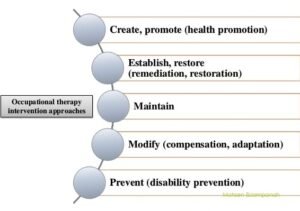In today’s society, there is a growing awareness and understanding of children with special needs. These remarkable individuals possess unique characteristics that make them stand out and contribute in their own exceptional way. While their needs may differ from their peers, it is their strength, resilience, and unwavering spirit that truly defines them. In this article, we explore the various aspects that shape the identity of children with special needs and shed light on the invaluable role they play in our society.

Table of Contents
Defining Special Needs
Medical Perspective
From a medical perspective, special needs can be defined as conditions or disorders that require additional support or accommodations due to physical, intellectual, sensory, developmental, or emotional/behavioral challenges. These needs may arise from congenital conditions, genetic disorders, accidents, or other factors. Medical professionals play a crucial role in diagnosing and managing special needs through comprehensive evaluations and personalized treatment plans.
Educational Perspective
In an educational context, special needs refer to a diverse range of learning and developmental difficulties that hinder a child’s ability to achieve academic success and participate fully in the standard curriculum. This perspective entails recognizing the unique strengths and challenges of each student and providing individualized support through special education programs and interventions. The educational perspective emphasizes inclusive and accessible learning environments to promote the holistic development of students with special needs.
Societal Perspective
The societal perspective of special needs involves understanding the impact of these conditions on individuals, families, and communities. It focuses on creating an inclusive and supportive society that values diversity and ensures equal opportunities for individuals with special needs. This perspective calls for raising awareness, challenging stereotypes, and fostering a sense of acceptance and inclusion to reduce the stigma associated with special needs. Society plays a pivotal role in advocating for policies and practices that promote the rights and well-being of individuals with special needs.
 Types of Special Needs
Types of Special Needs
Physical Disabilities
Physical disabilities encompass a broad range of conditions that affect mobility, dexterity, or physical functioning. Examples include cerebral palsy, muscular dystrophy, spina bifida, and limb differences. Individuals with physical disabilities may require assistive devices, therapies, and accessibility modifications to maximize their independence and participation in everyday activities.
Intellectual Disabilities
Intellectual disabilities refer to limitations in cognitive functioning and adaptive behaviors. These disabilities can range from mild to profound and affect an individual’s intellectual and social functioning. Conditions such as Down syndrome, autism spectrum disorders, and intellectual developmental disorders fall within this category. People with intellectual disabilities benefit from specialized educational programs, vocational training, and ongoing support to develop their skills and reach their full potential.
Sensory Impairments
Sensory impairments include vision and hearing loss, which greatly impact an individual’s ability to perceive and interact with the world. Visual impairments can range from partial to total blindness, while hearing impairments can range from mild to profound deafness. Specialized interventions, such as braille education and sign language instruction, assistive devices, and sensory aids, help individuals with sensory impairments access information, communicate effectively, and participate in various activities.
Developmental Disorders
Developmental disorders encompass a range of conditions that affect a child’s development and behavior. Examples include attention-deficit/hyperactivity disorder (ADHD), specific learning disorders, and communication disorders. These disorders may impact a child’s academic progress, social skills, and overall functioning. Early intervention programs, individualized educational strategies, and therapeutic interventions play a crucial role in supporting children with developmental disorders.
Emotional/Behavioral Disorders
Emotional and behavioral disorders refer to conditions that affect a person’s emotional well-being, social functioning, and behavior regulation. Conditions such as anxiety disorders, depression, conduct disorders, and oppositional defiant disorder fall into this category. Children with emotional and behavioral disorders often require a multi-faceted approach involving counseling, behavior management strategies, and support from mental health professionals to address their specific needs.
Diagnostic Process
Medical Evaluation
The medical evaluation is a comprehensive process conducted by healthcare professionals to diagnose and assess the medical aspects of a child’s special needs. It involves physical examinations, medical histories, laboratory tests, and imaging studies to identify any underlying health conditions or physiological factors contributing to the special needs. Medical evaluations also play a crucial role in identifying potential co-occurring conditions and guiding appropriate medical interventions.
Psychological Assessment
Psychological assessments are conducted by psychologists or other mental health professionals to evaluate a child’s cognitive, emotional, and behavioral functioning. These assessments involve standardized tests, interviews, observations, and questionnaires to measure various aspects of the child’s development and identify any psychological or cognitive impairments. Psychological assessments are key components in diagnosing intellectual disabilities, developmental disorders, and emotional/behavioral disorders.
Educational Testing
Educational testing is a crucial part of the diagnostic process from an educational perspective. Qualified professionals, such as special education teachers or school psychologists, administer various tests and assessments to evaluate a child’s academic performance, learning style, and specific educational needs. These tests help identify learning disabilities, educational gaps, and areas of strength, guiding the development of individualized education plans and determining eligibility for special education services.

Prevalence of Special Needs
Global Statistics
Globally, the prevalence of special needs varies significantly across countries and regions. According to data from the World Health Organization, an estimated 15% of the world’s population, or around 1 billion people, experience some form of disability, with approximately 93 million being children. The rates of special needs can be influenced by factors such as access to healthcare, socioeconomic conditions, educational opportunities, and the availability of support services.
Regional Disparities
Regional disparities in the prevalence of special needs exist due to variations in healthcare systems, socio-cultural factors, and economic conditions. Developing countries often face greater challenges in providing adequate support and services for individuals with special needs due to limited resources, infrastructure, and awareness. These disparities highlight the need for global collaboration and targeted interventions to address the specific needs of different regions and populations.
Trends and Projections
Trends indicate an overall increase in the prevalence of special needs worldwide. Factors such as improved diagnostic techniques, increased awareness, and changing environmental factors contribute to this trend. Additionally, advancements in medical care and technology have allowed more children with complex medical conditions to survive and thrive, leading to a higher prevalence of certain special needs. Projections suggest that the prevalence of special needs will continue to rise, underscoring the importance of proactive planning and support systems.
Educational Rights and Support
Individuals with Disabilities Education Act (IDEA)
In the United States, the Individuals with Disabilities Education Act (IDEA) is a federal law that ensures children with disabilities, including special needs, have the right to a free and appropriate public education in the least restrictive environment. IDEA sets forth guidelines for the provision of special education services, including the development of individualized education programs (IEPs), which tailor educational plans to meet each child’s unique needs. IDEA promotes inclusive practices, parental involvement, and collaboration among educators, ensuring children with special needs receive equal access to education.
Special Education Services
Special education services encompass a range of educational interventions designed to meet the unique needs of students with special needs. These services include specialized instruction, accommodations, modifications to the curriculum, assistive technology, and related support services. Special education can be delivered through inclusion in mainstream classrooms, resource rooms, specialized schools, or a combination of these settings. The goal is to provide a supportive and individualized educational experience that allows students with special needs to reach their full potential.
Individualized Education Programs (IEPs)
Individualized Education Programs (IEPs) are legally mandated documents that outline the specific educational goals, accommodations, and services required for students with special needs. Developed in collaboration with parents, teachers, and other relevant professionals, IEPs provide a roadmap for supporting the child’s unique learning needs. They address areas such as academic goals, special education services, related therapies, and needed accommodations or modifications. IEPs ensure that each child’s educational plan is tailored to their specific strengths and challenges.
Social Challenges and Stigma
Stereotypes and Misconceptions
Despite increasing awareness and advocacy, individuals with special needs continue to face stereotypes and misconceptions. Society often holds preconceived notions about their abilities, limitations, and potential. Stereotypes can perpetuate biases and hinder social inclusion by reinforcing negative attitudes or underestimating the capabilities of individuals with special needs. Combatting these stereotypes requires education, exposure to diverse abilities, and challenging societal norms.
Bullying and Discrimination
Children with special needs are at a higher risk of experiencing bullying and discrimination due to their differences and vulnerabilities. This mistreatment can occur in various settings, including schools, communities, and even within families. Bullying and discrimination can have profound negative effects on the mental health, self-esteem, and overall well-being of individuals with special needs. Strategies such as awareness campaigns, fostering empathy, and implementing anti-bullying policies are essential in creating a safe and inclusive environment for all.
Inclusion and Acceptance
Promoting inclusive practices and fostering acceptance is crucial in addressing social challenges facing individuals with special needs. Inclusion involves creating environments where individuals with special needs can fully participate in all aspects of life, including education, employment, social interactions, and recreational activities. Acceptance goes beyond mere tolerance and implies embracing and appreciating the diversity of abilities and experiences. By promoting inclusivity and acceptance, society can create a more equitable and compassionate world for individuals with special needs.
Family Impact and Support
Parental Stress and Coping
Raising a child with special needs can present unique challenges and, at times, place significant stress on parents and caregivers. The complexities of managing medical appointments, therapies, educational needs, and societal expectations can lead to increased stress levels. It is crucial for parents to have access to support networks, counseling services, and respite care to help manage their stress effectively. Building resilience and adopting self-care practices can empower parents to navigate the unique demands of raising a child with special needs.
Financial Strain
Families with children who have special needs often face financial strain due to the additional costs associated with medical interventions, therapies, assistive devices, and specialized education. These expenses can be overwhelming for many families, particularly those without adequate financial resources or appropriate insurance coverage. Financial support systems, government assistance programs, and community resources can help alleviate some of the financial burdens faced by these families, ensuring equitable access to necessary services and support.
Support Networks and Resources
Establishing support networks and accessing available resources play a crucial role in helping families navigate the challenges associated with special needs. Connecting with other families who share similar experiences can provide emotional support, information sharing, and valuable advice. Local community organizations, parent support groups, and online platforms contribute to building these networks. Additionally, accessing reliable information, working with support coordinators, and utilizing educational resources promote informed decision-making and effective advocacy for the child.
Healthcare and Therapy Services
Medical Interventions
Medical interventions for individuals with special needs aim to address specific health conditions, manage symptoms, and enhance overall well-being. These interventions can include medication management, surgical procedures, assistive devices, and specialized treatments. Multidisciplinary healthcare teams work collaboratively to develop individualized care plans and provide ongoing support to individuals with special needs and their families. Regular medical check-ups, therapy consultations, and access to specialized services are vital components in ensuring optimal health outcomes.
Speech and Language Therapy
Speech and language therapy is an essential service for individuals with special needs who experience communication difficulties. These therapy sessions focus on improving speech articulation, language comprehension, and social communication skills. Speech-language pathologists employ various techniques, exercises, and assistive technology to develop and enhance the individual’s communication abilities. Speech and language therapy plays a significant role in supporting overall development, fostering social interactions, and empowering individuals to express themselves effectively.
Occupational Therapy
Occupational therapy focuses on improving individuals’ ability to engage in daily activities, enhancing their functional skills, and promoting independence. Occupational therapists work with individuals with special needs to develop strategies and adapt their environments to facilitate participation in activities such as self-care, play, and school-related tasks. Through therapeutic interventions, individuals can develop fine motor skills, sensory integration, self-regulation, and cognitive abilities needed for independent functioning and improved quality of life.
Physical Therapy
Physical therapy addresses the unique movement and mobility challenges faced by individuals with special needs. Physical therapists work with individuals to improve strength, coordination, balance, and range of motion through targeted exercises and interventions. These therapy sessions assist in managing pain, preventing contractures, promoting physical independence, and optimizing mobility. Physical therapy plays a vital role in enhancing overall functional ability, promoting healthy growth and development, and optimizing individuals’ physical well-being.
Transition to Adulthood
Educational Transition Planning
Transition planning is a crucial process that supports individuals with special needs as they prepare to transition from the educational system to adulthood. This planning typically begins during high school and involves identifying post-secondary goals, exploring career options, and developing a plan to attain these goals. It includes factors such as vocational training, continuing education, and community-based services. Educational transition planning ensures a smooth and successful transition, empowering individuals to pursue their desired paths and become active members of society.
Vocational Training
Vocational training equips individuals with special needs with the skills and knowledge necessary to enter the workforce and pursue meaningful employment. These programs focus on developing job-related skills, fostering independence, and promoting self-sufficiency. Vocational training can range from skill-based workshops to comprehensive programs that provide hands-on experiences, internships, and job placement support. By offering specialized training and support, vocational programs open doors to employment opportunities and empower individuals to lead fulfilling lives.
Independent Living
For individuals with special needs, achieving independence in daily living tasks is an essential aspect of transitioning to adulthood. Independent living skills encompass a wide range of abilities, including personal hygiene, household management, financial literacy, transportation, and decision-making. Various programs and resources are available to support individuals with special needs in acquiring and honing these skills. By developing independence in daily living tasks, individuals can enhance their self-esteem, autonomy, and overall quality of life.
Advocacy and Policy Reform
Parent and Nonprofit Organizations
Parent and nonprofit organizations play a crucial role in advocating for the rights and well-being of individuals with special needs and their families. These organizations provide a platform for parents and caregivers to connect, share experiences, and advocate for policy reform. They offer support services, information resources, and guidance on navigating educational, healthcare, and legal systems. Through their collective efforts, parent and nonprofit organizations contribute to raising awareness, driving change, and shaping inclusive policies and practices.
Legislation and Rights
Legislation and legal frameworks are essential in safeguarding the rights and promoting the well-being of individuals with special needs. These laws vary across countries and regions but often focus on ensuring equal access to education, healthcare, employment, and community support services. Legislation, such as the Americans with Disabilities Act (ADA) in the United States, aims to prevent discrimination, promote accessibility, and guarantee equal opportunities for individuals with special needs. Effective legislation provides a foundation for inclusive practices and empowers individuals with special needs to fully participate in society.
Inclusive Policies
Inclusive policies are instrumental in creating an equitable and supportive society for individuals with special needs. These policies encompass various domains, including education, employment, healthcare, transportation, and housing. Inclusive policies promote accessibility, reasonable accommodations, and opportunities for full participation and social integration. Collaborative efforts among policymakers, professionals, and advocacy groups are necessary to develop and implement inclusive policies that address the unique needs and support the diverse abilities of individuals with special needs.
In conclusion, defining special needs requires considering multiple perspectives, such as the medical, educational, and societal viewpoints. Special needs encompass a wide range of conditions and challenges, including physical disabilities, intellectual disabilities, sensory impairments, developmental disorders, and emotional/behavioral disorders. The diagnostic process involves medical evaluations, psychological assessments, and educational testing to identify and understand the unique needs of individuals. The prevalence of special needs varies globally, with regional disparities and trends indicating an overall increase. Educational rights and support are provided through legislation such as the Individuals with Disabilities Education Act (IDEA), ensuring inclusive education and individualized education programs (IEPs). Social challenges, stigma, and discrimination must be addressed through combating stereotypes, fostering inclusion and acceptance, and promoting awareness and anti-bullying efforts. Families of individuals with special needs face unique challenges, including parental stress, financial strain, and the need for support networks and resources. Healthcare and therapy services, such as medical interventions, speech and language therapy, occupational therapy, and physical therapy, play vital roles in supporting individuals’ physical and emotional well-being. Transition to adulthood involves educational planning, vocational training, and fostering independent living skills. Advocacy and policy reform are essential for promoting the rights and well-being of individuals with special needs, with parent and nonprofit organizations, legislation, and inclusive policies playing key roles in driving change and ensuring a more inclusive society. By understanding and addressing the wide-ranging aspects of special needs, we can create a more inclusive and supportive world for all individuals.



